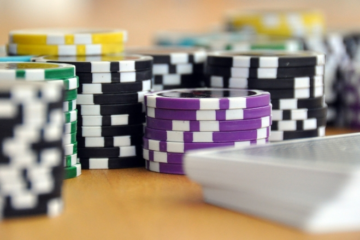Tennis Betting Strategies and Tips

Tennis is an exciting sport for betting because unlike the other popular games like for example a football match, as there can only be 2 outcomes in a tennis match. There is no possibility of draw in the game which works well for the wager.
Therefore, this is beneficial for bettors as compared to the other games. There is a big turnover in the tennis matches on a given day the entire calendar year.
Golden rule of betting in tennis
As per one experienced betting expert of Betufa, it is preferable to bet on men’s game. However, that does not mean that we are trying to demean the women’s game. It is just that, a particular brand of analysis done statistically shows that, betting will work better for tennis played by men, which is more predictable.
People who specialise in betting for lower-end tournaments of men’s tour say that there is far more than 250 ranking points.
They rationalise that everybody knows almost everything about elite players, so it is difficult to have an edge while betting in big competitions.
Another golden rule of betting in tennis
You must not focus solely on finding more of winning bets, rather you must be constantly thinking of getting better value on the bets. Value is when you get better odds, where you stand to earn more on your winnings. That will help you increase your profits, if you follow this principle in the long run.
If you have clear strategies, then betting is pretty simple. For example, instead of backing your bet for the odds of 2:20 for the coin-toss before the match, you can go for 1:70. The logic here is pretty solid, because you are choosing the odds that can yield better value.
Usually, professional sports gamblers are not too focused on the odds or winnings. They are instead keen on knowing patterns or current trends and outcome. Once they become aware of the likely outcomes, then they can easily understand if the odds are going to work in their favour, or not. Therefore, you will also need to understand the complete picture of team performances for long-term success on sports betting.
Let us take a practical example to clear this concept. Before the 2015 US Open final, someone who was an acquaintance guessed that Novak Djokovic really had 65% chance to beat Roger Federer.
Later, we will outline some ways that you may more accurately try to work out all these percentages yourself. If you divide 1 with this figure, and then multiplying it with 100, he could determine the odds about Djokovic really should have been.
For example: ((1 ÷ 65) x 100 = 1.54).
However, people in the market disagreed, and offered much more generous value of 1.82, and therefore our friend had large bet with very happy outcome.
Without going into depth about this point, it is important that one should note, though our friend thought Djokovic was the most possible winner of the match, he perhaps would not have the bet if odds was not expressively higher than his actual odds of the value 1.54, and he would have happily gone for Djokovic if that had been significantly shorter.










